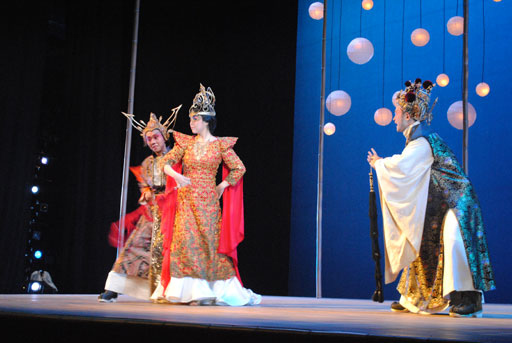
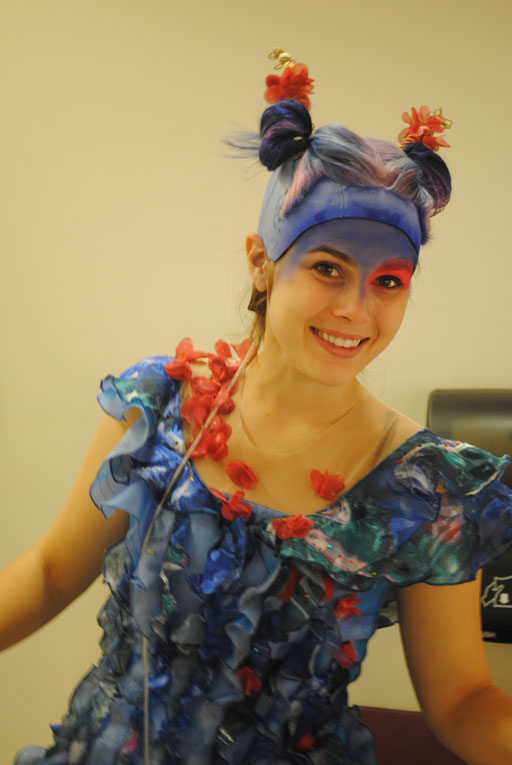
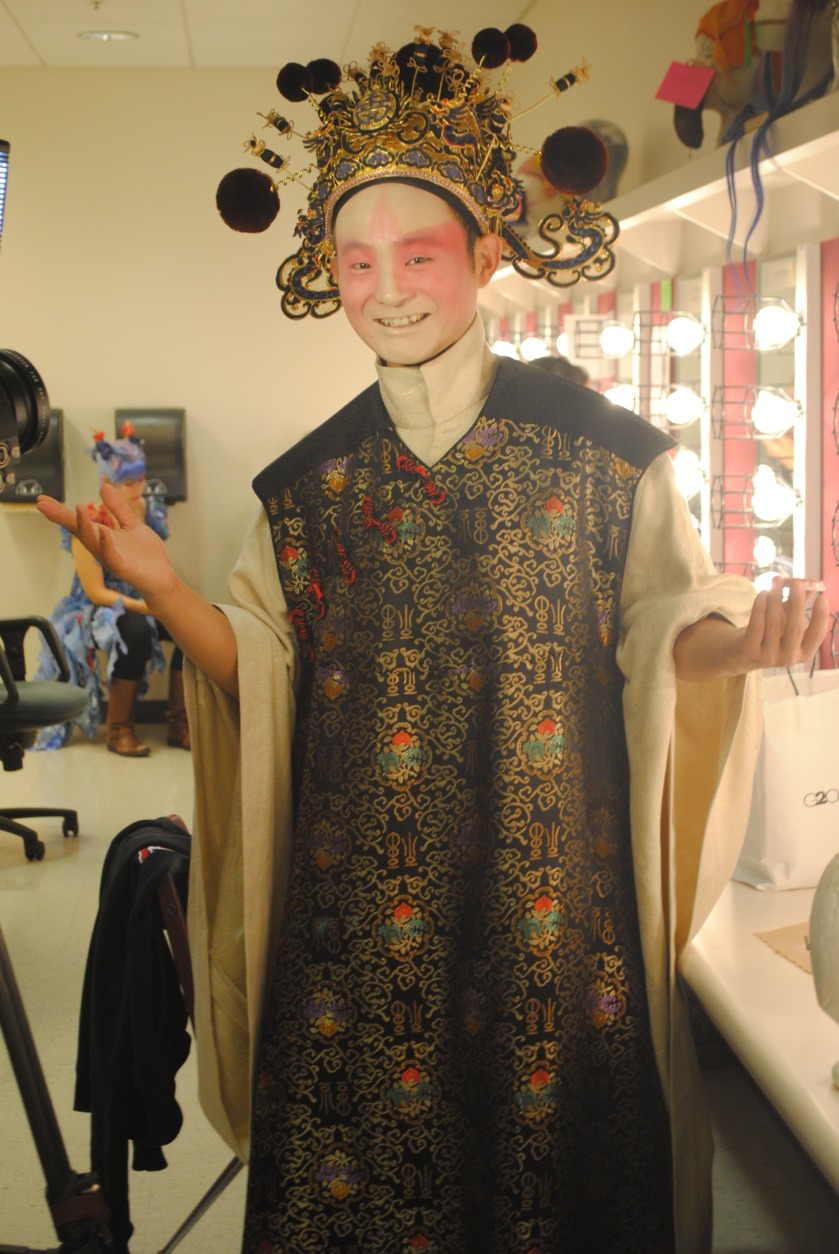
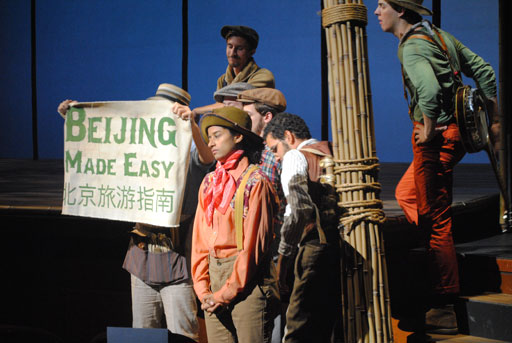
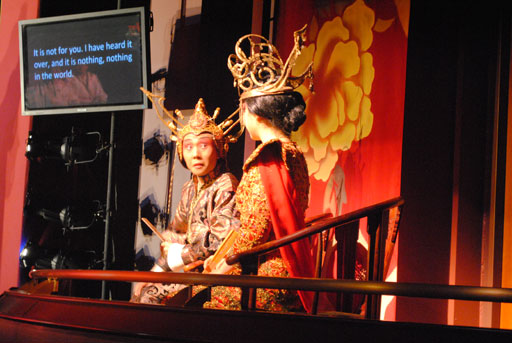
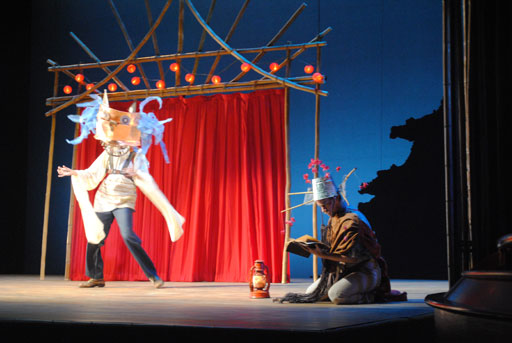
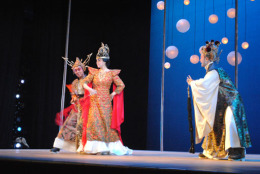
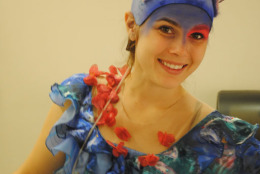
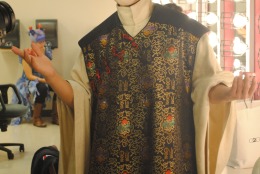
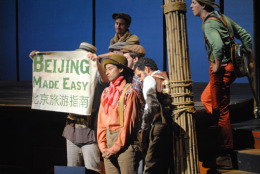
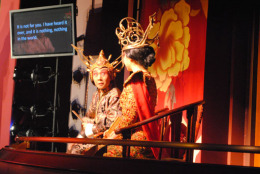
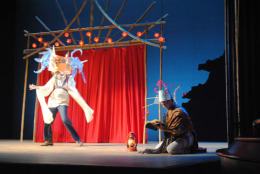
Madeline Tallman, special to WTOP
COLLEGE PARK, Md. – Students and faculty at the University of Maryland teamed up with Beijing’s National Academy of Chinese Theatre Arts to put on Shakespeare’s “A Midsummer Night’s Dream” last weekend, intertwining the eastern and western cultures and languages.
The initial idea came from university faculty members Helen Huang and Li Wei of the National Academy for Chinese Theatre Arts.
Huang was teaching in China two years ago when the two started collaborating the idea of a co-production. In 2010, she proposed the idea to Mitchell Hébert, a co-director of the production, who agreed without hesitation.
“(Huang) has been the glue that’s held this thing together,” Hebert said.
For the next two years, professors and production crew in Maryland and Beijing collaborated through Skype, email and Dropbox to send pictures and ideas.
The directors, Hébert and Yu Fanlin, decided early that both languages would be incorporated, Chinese performers would speak Chinese and American performers would speak English.
“The power of performers working in their own language … is transformative,” Hebert said.
The crew put several plasma screen televisions around the stage with supertitles interpreting both languages.
About 2,000 people attended the five performances, making this one of the more popular shows this season for the university’s Clarice Smith Performing Arts Center.
Olivia Brann, a senior theater performance and Chinese double major, acted as a stand-in for the Chinese performers before they arrived, speaking their lines to the American performers in rehearsals. She played a fairy named Cobweb.
“I think the most important relationship other countries can have with each other is art,” said Brann, who studied Beijing opera in China last year.
“We can come together and make friendships and bond,” she said. “It’s just so beautiful.”
Chinese performers arrived in Maryland on Sept. 8.
The performance finished its run on Sept. 30, and both casts will be traveling to Beijing to perform the show again.
Follow WTOP on Twitter.
(Copyright 2012 by WTOP. All Rights Reserved.)







